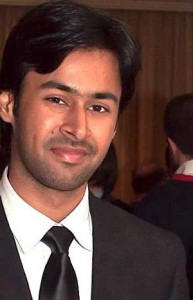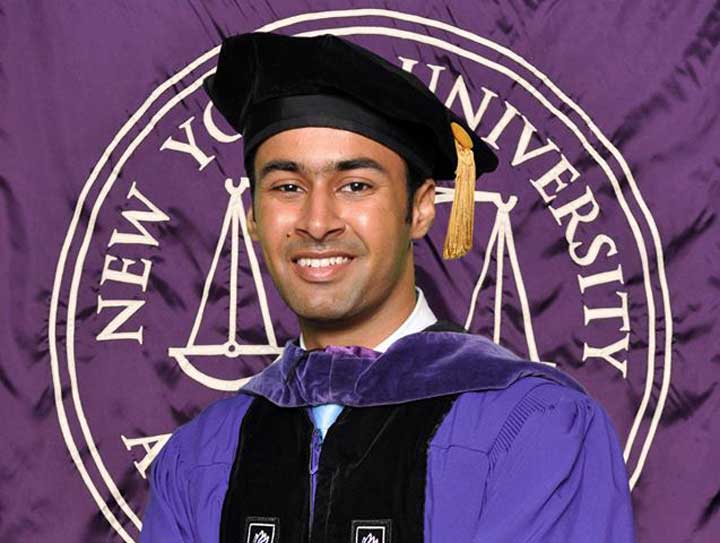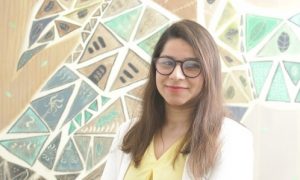Ankit Yadav is one of the illustrious graduates of 2012 batch from RMLNLU. He subsequently went on to pursue his Masters NYU School of Law. After graduation he went for an LL.M. to New York University. During his tenure as an LL.M. candidate at NYU he worked with many legal luminaries and also had the opportunity to judge in the Philip C. Jessup International Law Moot.
During this interview we speak to him about:
- LL.M experience at New York University
- Researching for Prof. Jose E. Alvarez and Prof. Eda Katharine Tinto
- Perspective of a judge of Philip C. Jessup on what is an awesome memorial
How would you like to introduce yourself to them?
I am still a student of law, who is endeavouring to make a mark in this field.
Tell us something about your life before college.
I am a first generation lawyer. I did my schooling in the science background which, I still believe, helps me in having an objective approach towards various situations.
How did you gravitate towards legal studies?
I would not go on to the extent of saying that I always dreamt of being a lawyer. But yes, it always appeared to me as a fascinating profession, especially because most great leaders across the globe are/were lawyers. I believe that the study of law helps one relate better to the society and its needs.
How did you go about securing internships at places like top tier firms?
My idea of doing internships was to get a sense of different areas and work setups in this field (law firms, lawyers’ chambers, governmental and non- governmental organisations), which later allowed me to make an informed career choice.
Most law students have an apprehension that one can’t get a good internship without having good contacts or knowing someone who can recommend you. Well honestly, I also thought so till the time I was proved wrong. Having a good network of relevant people is always a plus point in this profession.
However, that does not mean that you cannot secure a good internship without the same.In my opinion, the key to securing a good internship is to apply well in advance and have a cover letter that allows the employer to judge your skills within a period of 30-40 seconds. Most employers get numerous applications every day. Therefore, the cover letter and resume of an applicant should be very concise and well drafted.
Every internship that I did, not only helped me in honing my skills but also allowed me to decide what kind of lawyer I want to be. Internships teach us time management, team work, work ethics and give us a chance to put our classroom knowledge into practice. In short, internships give law students an insight into the real practice of law. Therefore, I would strongly recommend that law students should take all their internships very seriously.
What was your motivation behind pursuing LL.M.?
Everyone in my family is a post-graduate and I did not want to be the least literate one. I always wanted to get the knowledge, skills, academic resources and exposure that a world class university offers. Therefore, it was always there at the topmost position of my priority list. The only requirement was to get through one of the leading institutions of the world, which I was fortunate enough to get.
 How should one go about choosing a university?
How should one go about choosing a university?
The hard task is for the law students to decide what area of law they want to specialize in. Once that is done, the process becomes relatively easier. Law schools ranking are available online and law students are good at doing online research. One needs to find the best uinversities in their chosen area of specialization. Location of the law school also plays an important role in determining what kind of exposure it would be able to offer to a prospective student. Therefore, a law student should take this into consideration before choosing a university.
Please tell our readers about the application procedure and other requirements for an LL.M. at NYU.
The application procedure for an LL.M at NYU is almost the same as other Universities of US and UK. All the applicants are required to submit a statement of purpose, writing samples and letters of recommendation along with the application form. All the information is available on the official website of NYU.
Does NYU provide students with scholarships?
Yes, like most leading universities, NYU also offers merit-based scholarships to prospective students. Also, apart from the scholarships offered by law schools, a number of charitable organisations offer merit-based scholarships to students who have secured or are hopeful of securing admissions in well recognized law schools abroad.
Was there a lot of academic work?
Yes, the work load becomes overwhelming at the beginning, but one gets used to the system after a while. Reading or writing assignments are allotted for every class and one has to go prepared to be able to understand the discussions properly.
Please tell us about your experience working with Prof. Jose E. Alvarez and also Prof. Eda Katharine Tinto as Research Assistant.
The work I did during my research assistantships was very enriching not just because of its academic value but also because of the amount of experience and knowledge I gained while working with the people who are widely recognized for their contribution to the American and international society.
How has the experience of being Judge at the international rounds of Philip C. Jessup International Moot Court Competition been?
It was truly a wonderful experience, being at the other side of the podium at the most prestigious moot court competition of the world, sharing the dais with and getting to interact with some of the well known faces of international law and just being a part of the entire process.
The primary qualities that every judge looks for is a strong understanding of the basic concepts of international law and a proper appreciation of the facts provided in the Compromis. Once these are present, then eloquence, demeanour, poise, innovative arguments and persuasive skills are the qualities that bring out the difference between a winning team and the rest.
If I want to write an awesome memo, what are the relevant skills and how should I go about learning them?
An awesome memo would be the culmination of an awesome research into an awesomely drafted document. When I grade a memorial, I look for good amount of research and its proper application in the facts provided. Every word that is mentioned in a Compromis/problem statement should be presumed to be relevant while drafting a memorial.
The language used should be formal and simple and must be as concise as possible. These are the skills that can only be acquired with practice. Therefore, it is imperative to have a first draft prepared well before the submission deadline and then keep refining it.
In my opinion, MUNs, debates and moot courts are a great way of developing advocacy skills (research, drafting and oratory skills among other things). Unlike regular academic coursework, these activities involve the thrill of getting immediate results for all the labour you put in them. They are also a great way of boosting up the confidence of a law student and to learn something which may not be a part of your academic coursework.
Was your typical workday during your internships in India any different from your workday abroad?
Not very different. Nowadays, most employers in India have also become more respectful towards their employees. They have started recognizing a proper work-life balance is necessary for employees to be able to perform up to their potential. I am hopeful that it will keep getting better from here on.
What are your future plans?
My future plans are to be a successful litigator. In the next five years, I want to be a well recognized name in this field.
Lastly, what would be your message to a law student who wants to excel as a lawyer?
Believe in yourself! If you are determined to be successful, no one can stop you. All you need is to stay focused and motivated. The legal profession needs to transform to keep pace with the changing society and our generation will bring about that change.
“I have, let’s say, sixty years to live. Most of that time will be spent working. I’ve chosen the work I want to do. If I find no joy in it, then I’m only condemning myself to sixty years of torture. And I can find the joy only if I do my work in the best way possible to me. But the best is a matter of standards—and I set my own standards. I inherit nothing. I stand at the end of no tradition. I may, perhaps, stand at the beginning of one.”
– Ayn Rand, The Fountainhead.
























